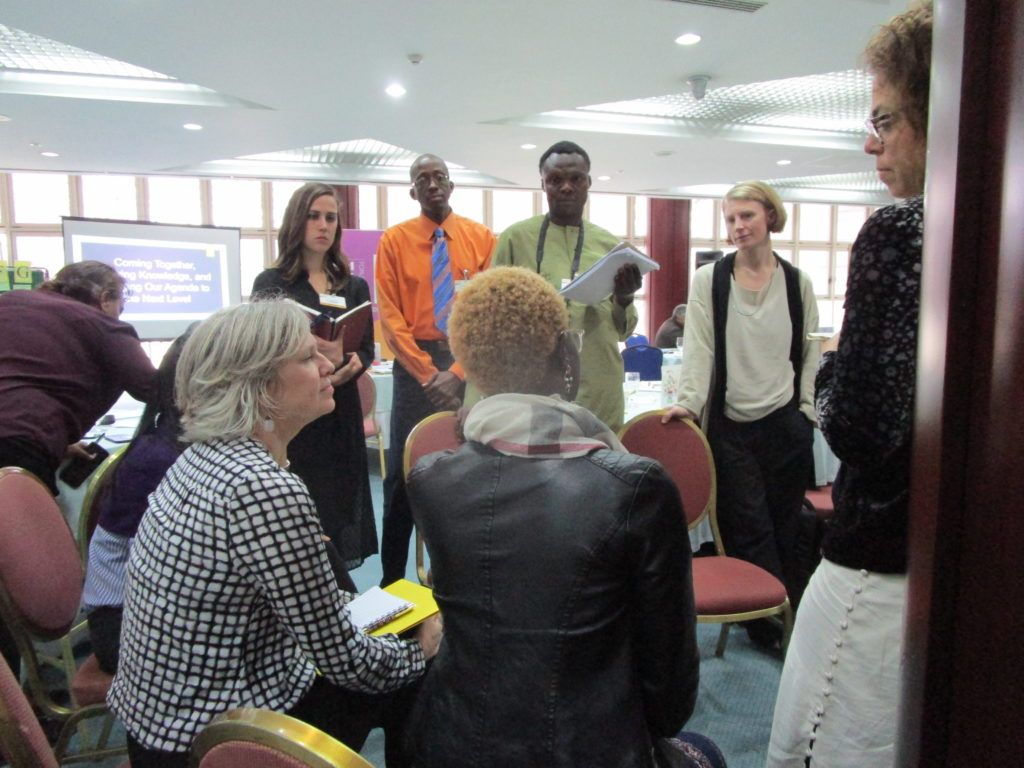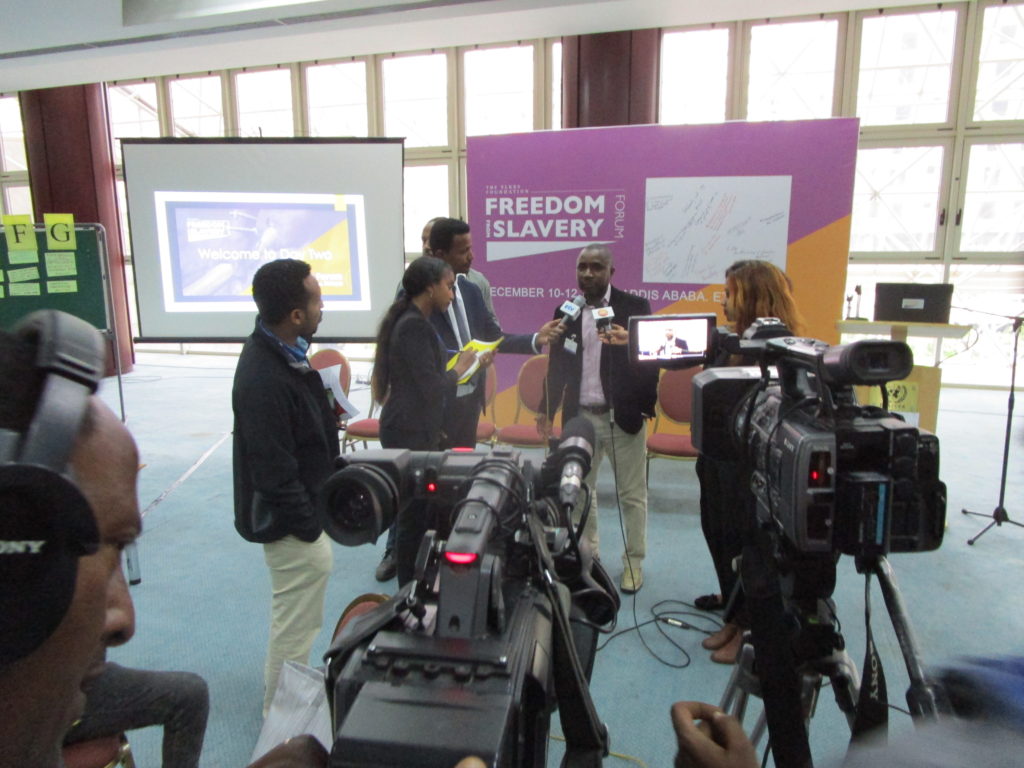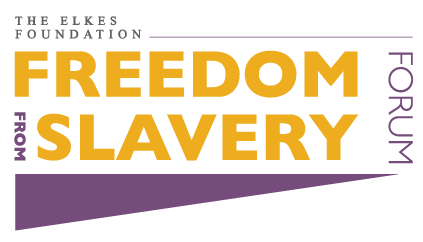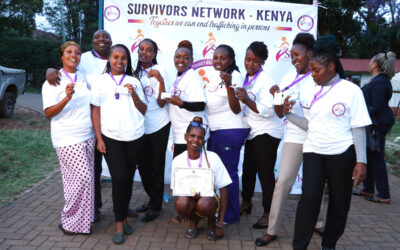Human rights activists from around the globe strategized new ways to confront the widespread problem of human trafficking and modern slavery during a special three-day convening at the U.N. Conference Center last week in Addis Ababa. Experts from 46 organizations in 18 countries crafted plans to accelerate civil society action in Africa, Asia, the Americas and Caribbean, Europe, and the Middle East.
The U.N. estimates that more than 40 million people are trapped in modern forms of slavery wordwide. Many of them are forced to work without pay as domestic servants or in the construction, manufacturing, agriculture and fishing industries. They generate USD $150 billion in illicit profits every year for traffickers and slaveholders. About 25 percent of enslaved people today are children.

Civil sociey organizations play a critical role in the prevention of such abuse, the protection of those victimized by it, and the prosecution of perpertrators. Efforts are now underway to increase civil society’s impact in order to achieve U.N. Sustainable Development Goal 8.7, the end of child labor by 2025 and forced labor by 2030.
Last week’s convening in Ethiopia was the seventh annual Freedom from Slavery Forum. The forum’s mission is to gather anti-trafficking experts from a wide range of independent civil society groups to share best practices, identify opportunities for coordinated action, and develop a stronger collective voice. Free the Slaves serves as the secretariat. See info about previous forums here.

A forum briefing for journalists featured the following speakers and themes:
- Bukeni Waruzi, Free the Slaves, United States: Slavery is widespread in Africa and the world; the Freedom from Slavery Forum exists to develop global solutions.
- Daniel Melese, The Freedom Fund, Ethiopia: Ethiopia is about to become a U.N. “Pathfinder” model nation; the country’s new national action plan must include civil society solutions.
- Lawrenta Igoh, National Agency for the Prohibition of Trafficking in Persons, Nigeria: Victims and survivors must lead the way by shaping and implementing anti-trafficking programs.
- Tina Frundt, Courtney’s House, United States: Governments and nonprofit groups must work together effectively for anti-trafficking plans to be successful.
- Purva Gupta, Global March Against Child Labor, India: Being gender responsive is a key for ending exploitation.
- Mark Makinde, Dignity Foundation for Relief and Development, South Africa: Bringing dignity to survivors grounds our work in human values.

The Ethiopia forum was funded by The Elkes Foundation, United Worldwide, and the U.S. Department of Labor.



